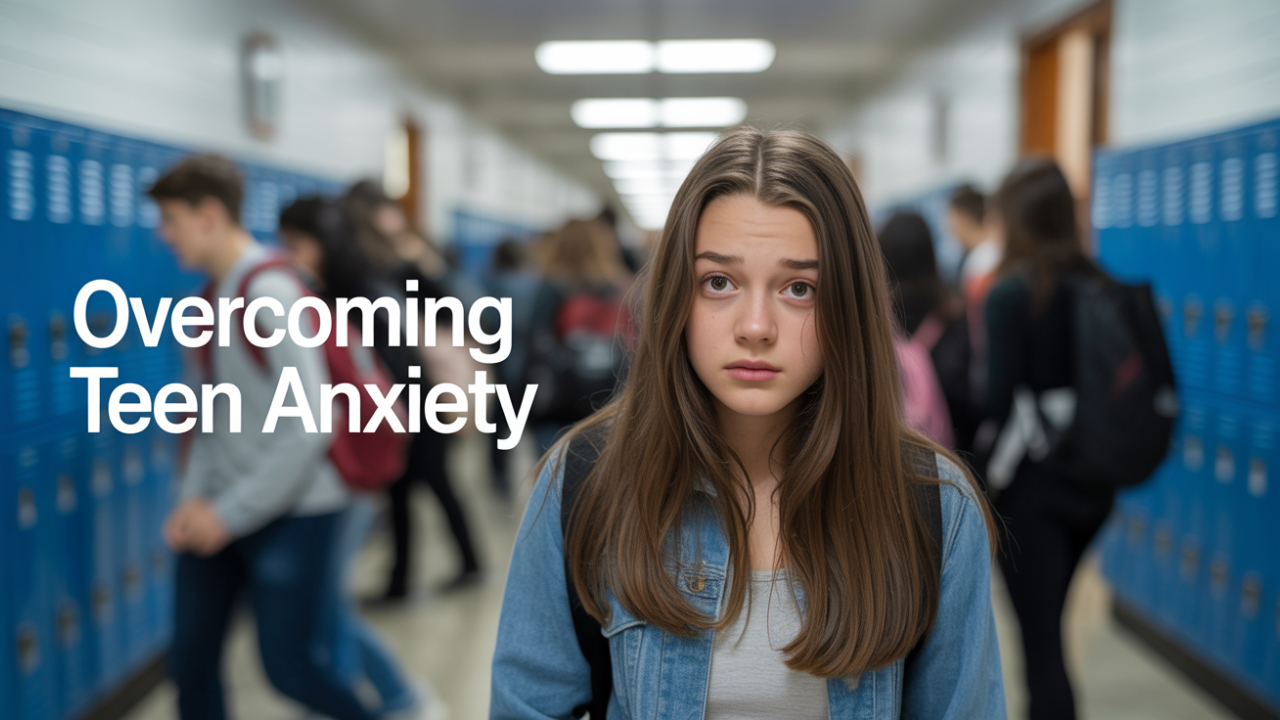Separation Anxiety in Teens

Separation Anxiety in Teens: Recognizing Symptoms, Causes, and Effective Treatment Options
Separation Anxiety Disorder affects up to 3.9% of early adolescents, causing intense fear and distress when apart from caregivers and home. In this guide, you’ll learn to identify emotional, physical, and behavioral symptoms; uncover triggers from environment, genetics, and attachment patterns; explore proven treatments like CBT, DBT, exposure, and medication; understand how virtual mental health programs bridge gaps in care; and discover coping strategies for teens and parents to foster resilience.
What Are the Common Symptoms of Teen Separation Anxiety?
Separation anxiety in teens manifests through a cluster of emotional distress, physical tension, and avoidance behaviors that disrupt daily functioning. Recognizing these symptoms early lays the groundwork for targeted support and treatment.
Which Emotional Signs Indicate Separation Anxiety in Adolescents?

Common emotional indicators include:
- Persistent worry that loved ones will be harmed when separated.
- Excessive fear of sleeping away from home or alone.
- Recurring nightmares about separation or harm.
- Intense distress or tantrums when anticipating parting.
These emotional symptoms often precede physical complaints and withdrawal, signaling the need to address bodily reactions next.
What Physical Symptoms Do Teens Experience with Separation Anxiety?
Physical manifestations frequently accompany worry:
- Headaches, stomachaches, nausea, or dizziness without medical cause.
- Rapid heartbeat, sweating, trembling, or shortness of breath in separation contexts.
- Sleep disturbances including insomnia or restless sleep.
- Frequent psychosomatic complaints leading to doctor visits.
Physical tension can reinforce avoidance behaviors, which in turn shape daily routines and treatment approaches.
How Does Separation Anxiety Affect Teen Behavior, Including School Refusal?
Behavioral changes may include:
- Refusing to attend school or extracurricular activities.
- Clinging to caregivers and difficulty transitioning between settings.
- Social withdrawal and reluctance to engage with peers.
- Rigidity in routines, demanding constant reassurance.
When school refusal emerges, understanding underlying causes becomes essential for effective intervention.
What Causes Separation Anxiety in Adolescents?
Separation anxiety arises from a combination of environmental stressors, biological predispositions, and early bonding experiences that shape a teen’s coping capacity.
How Do Environmental Factors Trigger Separation Anxiety in Teens?
Environmental catalysts can include:
- Major life changes such as moving, divorce, or parental loss.
- Exposure to traumatic events like accidents or abuse.
- Chronic stressors including bullying, academic pressure, or family conflict.
Traumatic and stressful experiences create a backdrop for inherited vulnerabilities to intensify distress, which genetics and mental health conditions further influence.
What Role Do Genetics and Underlying Mental Health Conditions Play?
Genetic predisposition and comorbid conditions contribute by:
- Transmitting anxiety sensitivity through family history.
- Amplifying separation fears when coupled with depression, social anxiety, or panic disorder.
- Affecting neurotransmitter regulation linked to stress response.
Inherited and co-occurring factors interact with attachment patterns established in early development.
How Does Attachment Style Influence Separation Anxiety Development?
Attachment dynamics shape security through:
- Insecure attachment leading to heightened fear of abandonment.
- Overprotective parenting limiting gradual autonomy building.
- Inconsistent caregiving fostering anticipatory anxiety around separation.
Attachment style sets the stage for how teens respond to supportive treatments like therapy and skill-building interventions.
What Are the Most Effective Treatments for Teen Separation Anxiety?

A blend of psychotherapies and, when necessary, medications addresses separation anxiety by targeting thought patterns, emotional regulation, and gradual exposure.
How Does Cognitive Behavioral Therapy (CBT) Help Teens with Separation Anxiety?
CBT improves coping by:
- Identifying and challenging catastrophic separation beliefs.
- Teaching problem-solving and cognitive restructuring skills.
- Assigning graduated separation tasks to build confidence.
Mayo Clinic, Separation anxiety disorder – Diagnosis and treatment, (2024)
Effectiveness of Cognitive Behavioral Therapy (CBT) for Anxiety
CBT is an effective form of therapy for separation anxiety disorder. Exposure treatment, a part of CBT, has been found to be helpful for separation anxiety. During this type of treatment, a child can learn how to face and manage fears about separation and uncertainty.
This citation supports the article’s discussion of CBT as a treatment option for separation anxiety.
What Are the Benefits of Dialectical Behavior Therapy (DBT) and Exposure Therapy?
DBT and exposure therapy support recovery by:
- Enhancing emotional regulation and distress tolerance with DBT skills.
- Gradually confronting feared separation scenarios to reduce avoidance.
- Combining mindfulness with behavioral experiments for sustained resilience.
These methods often reduce reliance on medication by strengthening self-management capacity.
McLean Hospital, Dialectical Behavior Therapy for Teens at McLean Hospital, (2022)
Benefits of Dialectical Behavior Therapy (DBT) for Teens
DBT helps teenagers manage anxiety by teaching them mindfulness and distress tolerance skills. These skills enable them to focus on the present moment and tolerate uncomfortable emotions without becoming overwhelmed.
This research supports the article’s discussion of DBT as a treatment option for separation anxiety.
When Is Medication Management Recommended for Separation Anxiety in Teens?
Medication is considered when:
- Anxiety severity severely impairs school attendance or social functioning.
- Therapy alone produces insufficient relief after a trial period.
- SSRIs or other anxiolytics balance neurotransmitter function under psychiatric guidance.
Child Mind Institute, Best Anxiety Medication for Children and Teens, (2024)
Medication for Anxiety in Teens
Selective Serotonin Reuptake Inhibitors (SSRIs) are often the first choice of medication for treating anxiety in children and teens. These medications have been shown to be effective and have relatively mild side effects.
This citation supports the article’s discussion of medication management for separation anxiety, specifically the use of SSRIs.
Integrating medication with therapy ensures a holistic, evidence-based treatment plan.
How Do Virtual Mental Health Programs Support Teens with Separation Anxiety?
Advances in telehealth improve access, engagement, and consistency of adolescent anxiety care through secure, interactive platforms.
What Are the Benefits of Online Therapy for Teen Separation Anxiety?
Online therapy offers:
- Reduced travel barriers and stigma by providing remote sessions.
- Flexible scheduling that fits school and family routines.
- Access to specialized clinicians regardless of geographic location.
Mental Health Center Kids, 10 Best Online Therapy Services for Teens in 2024, (2024)
Online Therapy for Teens
Online therapy provides an effective and convenient way to address common issues in teenagers, such as anxiety. Experts recommend having individual therapy once a week to maximize effectiveness.
This research supports the article’s discussion of virtual mental health programs and their benefits for teens.
These advantages foster sustained participation, paving the way for virtual delivery of core therapies.
How Are Virtual CBT and DBT Delivered for Separation Anxiety Treatment?
Virtual programs replicate in-person care using:
- Interactive video sessions for skill training and exposure assignments.
- Digital modules with worksheets, videos, and progress tracking.
- Secure messaging for between-session support and homework review.
This format ensures continuity of evidence-based interventions and parent-therapist collaboration.
What Is the Role of Parental Involvement in Virtual Therapy Programs?
Parental engagement strengthens outcomes by:
- Attending joint sessions to learn coaching and reinforcement techniques.
- Modeling calm separation strategies and celebrating small successes.
- Maintaining consistent routines and communication channels at home.
Caregiver participation transforms the virtual environment into a supportive ecosystem for change.
How Can Parents and Teens Cope with Separation Anxiety?
Practical strategies empower teens to manage anxiety while guiding parents to balance support and autonomy.
What Coping Strategies Help Teens Manage Separation Anxiety Symptoms?
Teens can practice:
- Deep-breathing exercises to regulate physical arousal.
- Journaling thoughts to reframe worries and track progress.
- Positive self-talk affirmations to challenge fears.
- Gradual exposure tasks like brief solo outings.
Granite Hills Hospital, 6 Effective Anxiety Coping Strategies for Teens, (2024)
Coping Strategies for Teens with Anxiety
Teens can utilize various coping mechanisms to manage anxiety symptoms, including deep-breathing exercises, journaling, positive self-talk, and gradual exposure to anxiety-provoking situations. These skills can foster independence and complement formal therapy approaches.
This research supports the article’s recommendations for coping strategies that teens can use to manage their anxiety.
Building these skills fosters independence and complements formal therapy approaches.
How Can Parents Support Their Teen’s Emotional Well-being and Independence?
Parents can support by:
- Establishing predictable drop-off routines and clear transition rituals.
- Encouraging decision-making in safe contexts to boost confidence.
- Validating feelings while reinforcing manageable separation goals.
- Collaborating with clinicians to adjust strategies as progress emerges.
This balanced approach nurtures autonomy, laying the foundation for long-term emotional resilience.
Every teen’s journey is unique, but timely recognition and targeted support can transform pervasive separation fears into growing independence. Evidence-based treatments, supplemented by virtual mental health programs, offer accessible pathways to recovery. With consistent coping practice and parental collaboration, adolescents can move beyond anxiety toward confident engagement in school, friendships, and life. If your family seeks specialized adolescent support, consider exploring our virtual mental health services designed to improve access, personalize care, and boost lasting well-being.









